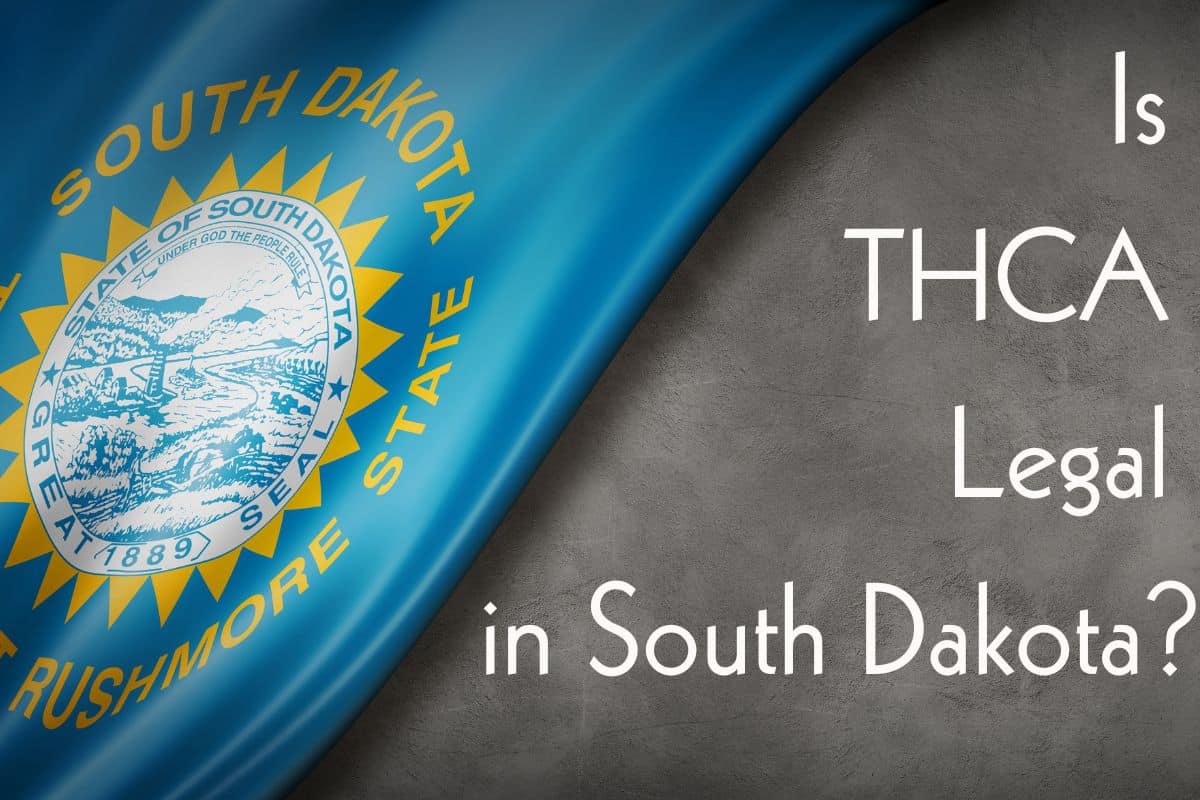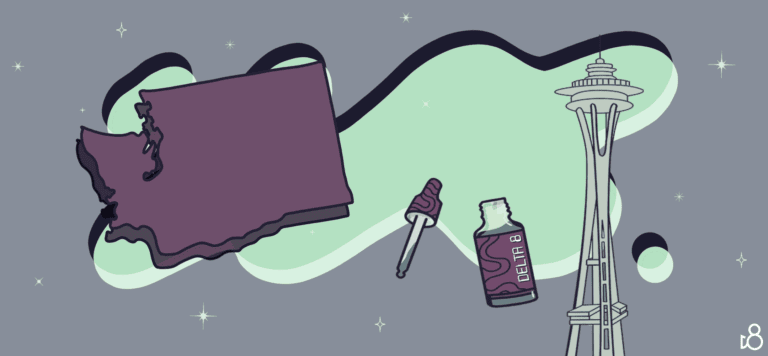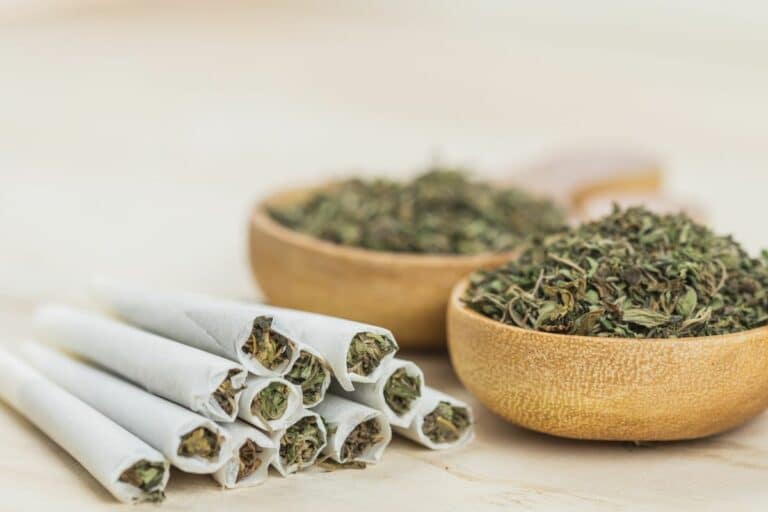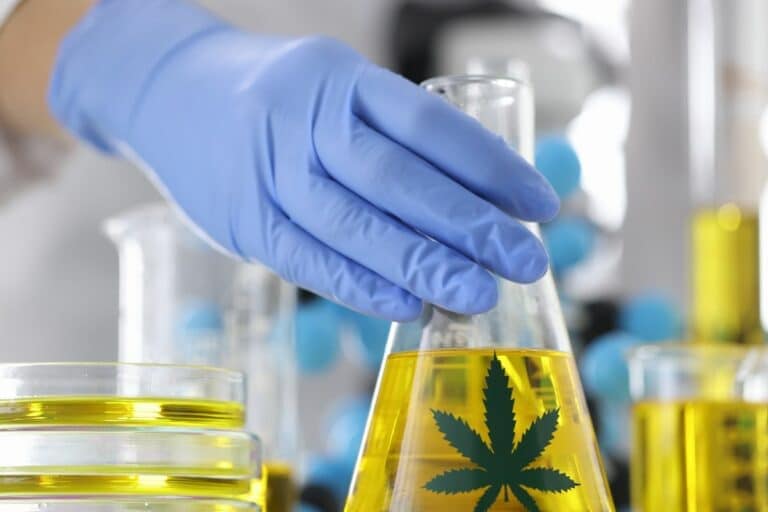Is THCa Legal in South Dakota: Clarifying Cannabinoid Legality
Jumping into the crazy realm of cannabis guidelines? You need the scoop on how each state throws down. Let’s peek at South South Dakota, they have an angle on THCa, the cannabis component that won’t buzz you up but is still THC’s kin. Their chat mixes up hemp and pot. Post-2018 Farm Bill, hemp with nearly no THC (think under 0.3%) got the thumbs up nationwide. Here’s the kicker: every state dictates its own hemp playbook. Wondering how South Dakota views it, or itching to unravel the cannabis law maze? This journey’s shouting your name, set to dispel the haze.
South Dakota’s approach to cannabis has been traditionally conservative, and this extends to compounds like THCa. As you look into the specifics, it’s important to consider both state and federal guidelines that could influence the legal status of THCa. Remember, the transformation of THCa to THC can happen through decarboxylation, which complicates the legal standing since THC is a controlled substance.
Keep in mind that as of my last update, laws can change, and legislative amendments could alter the current regulations. For the most accurate information, staying updated with South Dakota’s state laws and any recent federal adjustments is recommended to ensure your knowledge reflects the most recent legal status of THCa within the state.
Legality of THCa in South Dakota
In South Dakota, the legal status of THCa—a cannabinoid found in cannabis plants—is intertwined with state laws on cannabis, federal regulations, and the distinctions drawn between various cannabinoids, such as THCa and THC. Understanding these laws and distinctions is crucial for compliance and awareness of the potential legal implications.
State Cannabis Laws
In South Dakota, cannabis law has transformed significantly following the voter-approved Constitutional Amendment A, which aimed to legalize, regulate, and tax marijuana. However, the amendment’s status has been challenged, leaving the legality of cannabis, including its components like THCa, in a complex state. As you navigate these waters, remain vigilant about current legislation which can evolve rapidly.
Federal Legal Framework
Federally, THCa falls under the purview of the Controlled Substances Act, which classifies THC as a Schedule I drug. However, the 2018 Farm Bill distinguishes between cannabis (marijuana) and industrial hemp, legalizing hemp with a delta-9 THC concentration of not more than 0.3 percent on a dry weight basis. The legal implications for THCa depend on its source—cannabis or hemp—and its final concentration in a product.
Distinction Between THCa and THC
Understanding the distinction between THCa (tetrahydrocannabinolic acid) and THC (delta-9-tetrahydrocannabinol) is vital. THCa is the non-psychoactive precursor to THC, which becomes psychoactive when decarboxylated. South Dakota law doesn’t explicitly address THCa, but its conversion to THC upon heating may place it under scrutiny.
Medical Marijuana Program in South Dakota
South Dakota has a Medical Marijuana Program, overseen by the South Dakota Department of Health. If you’re a patient or caregiver registered under this program, you’re allowed to possess and use marijuana for medical purposes. The legal status of marijuana for medical use encompasses THCa within the regulated framework.
Hemp and Hemp-Derived Products Regulation
Hemp-derived products, including those containing cannabinoids like THCa, are legal under federal law, provided they contain less than 0.3% THC. South Dakota’s laws align with federal regulations, permitting the production and use of hemp and its derivatives that meet this criterion.
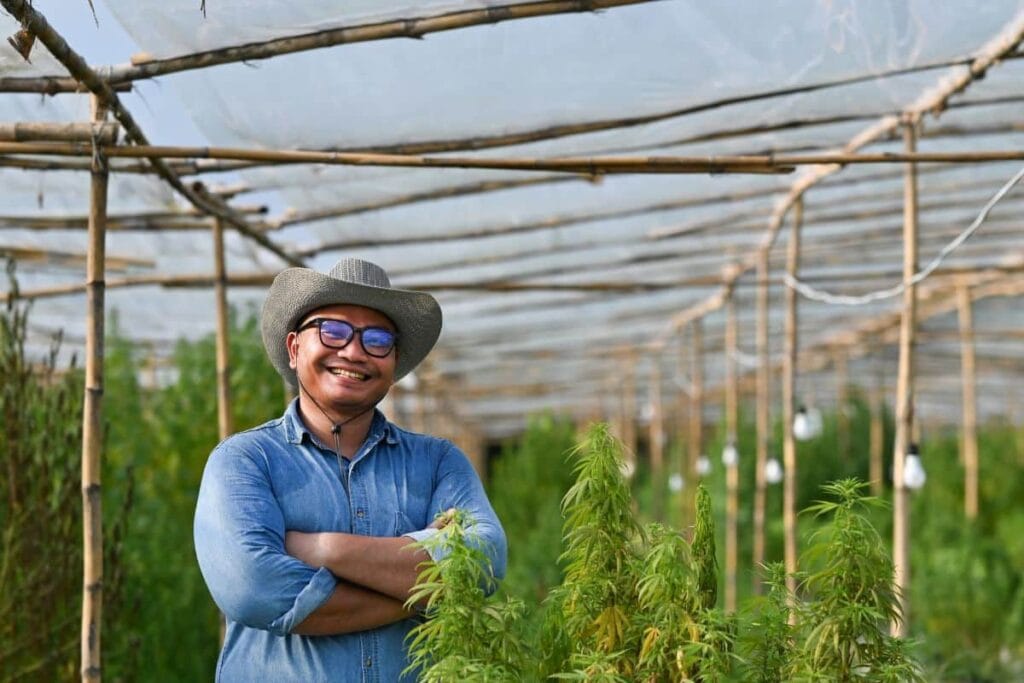
Possession and Cultivation Laws
State laws provide specific limits on the possession and cultivation of cannabis plants. These limitations apply to plants that can produce THCa, so exceedance of allowed quantities or unauthorized cultivation can lead to legal repercussions such as possession charges or arrests.
Enforcement and Penalties
In South Dakota, law enforcement takes the legality of substances seriously. If you are found with controlled substances outside of the legal parameters, including cannabis potentially high in THCa content, you may face penalties. These can range from fines to imprisonment depending on the quantity and intent.
Legal Precedents and Court Decisions
Court decisions play a significant role in interpreting the legal status of cannabis-related components like THCa. While Constitutional Amendment A has undergone legal challenges, precedents set in these cases will affect how THCa and cannabis laws are applied and enforced in the state. Keep an eye on current and future court decisions to stay informed on the evolving legal landscape.

Implications for Consumers and Businesses
When considering the landscape of THCa and its legality in South Dakota, you as a consumer or business owner must navigate a complex regulatory framework. Understanding the nuances of product access, business operations, labeling, agriculture, and public health impacts is crucial to staying compliant and informed.
Consumer Access to Cannabis Products
In South Dakota, you have access to cannabis products like gummies, edibles, and tinctures through licensed dispensaries. The legal status of these products is subject to state regulations, and you should be aware that products containing delta-8 and delta-10 THC are regulated differently than those with THCa.
Business Operations and Retail
Running a business in the cannabis sector means complying with South Dakota’s regulations, which affect all aspects from cultivation to retail. Your business operations will be shaped by stringent requirements for testing and THC content labeling, ensuring that consumers receive safe products.
Understanding Product Labels and THC Content
As a consumer, understanding product labels is crucial to knowing what you’re purchasing. Labels must clearly indicate the THC content and whether it includes THCa, delta-8, or delta-10. South Dakota requires that dispensaries and retailers provide accurate product content information.
Impact on Agriculture and Cultivation
If you’re involved in the cultivation of cannabis plants, you must adhere to the regulatory framework provided by South Dakota and the Department of Health. This includes regulations on the types of cannabis plants you can grow, the permissible levels of THC, and the conversion of THCa to THC.
Public Health and Safety Concerns
For public health and safety, driving under the influence of cannabis is illegal, and products must be designed to reduce the risk of seizures and nausea. Your awareness and compliance with these regulations play a part in fostering a safe community concerning the use and distribution of cannabis products.
Comparative Legal Landscape
| State | THCa Legal Status in 2022 | Notes |
|---|---|---|
| South Dakota | Generally illegal | South Dakota has strict cannabis laws, including THC. THCa is likely treated similarly to THC. |
| North Dakota | Generally illegal | North Dakota has strict cannabis laws. THCa is likely treated similarly to THC. |
| Minnesota | Legal for medical use | Minnesota has legalized medical cannabis, but recreational use is illegal. THCa may be subject to medical use regulations. |
| Iowa | Generally illegal | Iowa has strict cannabis laws. THCa is likely treated similarly to THC. |
| Nebraska | Generally illegal | Nebraska has strict cannabis laws. THCa is likely treated similarly to THC. |
| Wyoming | Generally illegal | Wyoming has strict cannabis laws. THCa is likely treated similarly to THC. |
| Montana | Legal for medical and recreational use | Montana has legalized both medical and recreational cannabis. THCa is subject to regulations. |
When you consider the legality of THCa, it’s crucial to look at the regulations within South Dakota, to understand how they compare with neighboring states as well as the broader national context.
Cannabis Regulation in Neighboring States
South Dakota: Cannabis, including THCa, remains highly regulated. Under state law, marijuana is illegal, except for medical use as per recent changes. North Dakota, Minnesota, and Iowa have varying levels of cannabis acceptance, with North Dakota permitting medical use but not for recreational. Minnesota allows for medical cannabis and has made signals toward recreational use. Iowa has a limited medical cannabis program but has not moved forward with broader legalization.
Nebraska: Remains steadfast in prohibiting any form of marijuana use, which encompasses THCa as well. Unlike Colorado, which has fully legalized cannabis for both medical and recreational use, Nebraska has not shown similar legislative momentum.
- Legal Status
- South Dakota: Medical
- North Dakota: Medical
- Minnesota: Medical (Toward Recreational)
- Iowa: Limited Medical
- Nebraska: Prohibited
- Colorado: Medical & Recreational
National Perspectives on Cannabis and THCa
In the U.S., the national perspective on cannabis and THCa is evolving. Despite the federal government’s classification of marijuana as an illegal substance, many states, including California, Colorado, and Oregon, have legalized it for medicinal and recreational purposes. This stands in contrast with the federal viewpoint, leading to a complex legal environment where THCa’s legality can vary greatly from state to state, often independent of federal directives.
Federal Law: Classified as illegal.
- State Approaches:
- California: Medical & Recreational
- Colorado: Medical & Recreational
- Oregon: Medical & Recreational
In your research and considerations regarding THCa, be mindful of the specific context of the locale you’re focusing on, as the legal environment can differ quite significantly from one jurisdiction to another.

Future of Cannabis Regulation
The regulatory landscape for cannabis, including various cannabinoids such as THCa, is poised for potential transformation. You’ll find out how state and federal laws might converge and what emerging trends and medical research developments could influence the legal status of these substances.
Potential Changes in State Legislation
In states like South Dakota, where cannabis laws have been historically stringent, Amendment A sought to legalize recreational marijuana but was struck down. However, legislative efforts continue, and you may see changes that reflect a shifting attitude towards decriminalization and regulation of cannabinoids. Specifically, THCa and compounds like delta-8 THC and HHC are likely to be scrutinized under a changing legal framework.
Federal and State Law Harmonization
Federal law categorizes marijuana as a Schedule I drug, creating a dissonance with state legislation where cannabis is legal. Your understanding of this complex landscape is crucial as you navigate the marijuana industry. There might be an alignment on the horizon as calls for a cohesive regulatory framework are becoming more prevalent, potentially impacting the legal status of marijuana and its derivatives across states, including South Dakota.
Emerging Trends in Cannabis and Cannabinoids
Emerging trends suggest a growing market for cannabinoids with various properties, such as delta-8 THC and HHC, which are touted for their distinctive effects. These substances are not as strictly regulated as THC, leading to a gray legal area that might soon be addressed by new state regulations or federal oversight to ensure consistency in the classification and legal status of cannabis compounds.
Advancements in Medical Research and Use
Medical research is continually uncovering the therapeutic potential of cannabinoids, offering you relief from conditions like nausea and seizures. The advancements in this area might pave the way for broader medical cannabis acceptance and integration into healthcare, influenced by supported scientific evidence. As a result, state cannabis laws may evolve to reflect a more nuanced understanding of cannabis and its medical uses.

Resources and Further Reading
As you navigate the complexities surrounding the legibility of THCa in South Dakota, various resources are available to deepen your understanding. These include educational materials to explain the nuanced differences between THCa and THC, detailed legal documents outlining state and federal laws, and contacts for advocacy groups and legal support that specialize in cannabis law.
Educational Materials
Cannabis Science: Grasp the scientific distinctions between THCa and other cannabinoids by exploring verified studies and resources. This knowledge is critical to understanding how THCa fits within the broader context of cannabis law and regulation.
- “Chemical and genetic variation in feral Cannabis sativa populations” provides an overview of the chemical components of cannabis, including THCa, within different environments.
State and Federal Legal Documents
State Legislation: South Dakota’s legal framework for cannabis includes several key documents that explain the current status of THCa:
- The Constitutional Amendment A and the Regulated Substances Act are pivotal in understanding how THCa is categorized and regulated on a state level.
- It’s important to review the Controlled Substances Act as well, to determine how federal law classifies THCa and its legal status.
Federal Landscape: Nationally, the Farm Bill is a significant piece of legislation that affects the legality of hemp-derived cannabinoids, potentially impacting THCa’s status.
- For precise language and clauses, access official repositories of South Dakota’s and the United States’ legislative documents.
Advocacy and Legal Support
Navigating Legalities: If you’re requiring clarification or assistance in legal matters pertaining to THCa or South Dakota’s medical marijuana program, reaching out to professional support can be beneficial.
- Organizations that offer advocacy and legal support provide resources and guidance for individuals and businesses operating under the state’s cannabis law.
- Such groups may announce updates on whether THCa is decriminalized or changes in its legal status, alongside offering educational workshops and legal representation.
Utilize these resources to remain informed and compliant with the evolving landscape of cannabis laws within South Dakota and at the federal level.
Frequently Asked Questions
In exploring the legal landscape of THCa in South Dakota, you may have several questions regarding current regulations and distinctions between different cannabinoids. This section aims to clarify these points for you.
What are the current regulations governing THCa in South Dakota?
As of now, the laws in South Dakota classify THCa, the acidic precursor of THC, under cannabis regulations. If THCa is converted to Delta 9 THC, the amount must be below 0.3% for hemp products, aligning with federal guidelines.
Can THCa be legally shipped to South Dakota?
Regarding the shipment of THCa to South Dakota, legislation follows federal standards that govern the transport of hemp-derived products across state lines, which mandates a Delta 9 THC concentration of less than 0.3%.
How does South Dakota law differentiate between THCa and Delta 9?
South Dakota law identifies THCa distinctly from Delta 9 THC in that THCa is non-psychoactive, whereas Delta 9 THC has psychoactive effects and is controlled under different legal parameters when it’s above certain concentration thresholds.
Are there any legal distinctions between THCa and THCP in South Dakota?
In South Dakota’s legal framework, THCP, a recently discovered cannabinoid, may not be as clearly distinguished as THCa from regulations covering THC. Since THCP is comparatively unstudied, existing laws may not yet account for its specific control.
What is the legal status of Delta 10 in relation to THCa in South Dakota?
Delta 10 THC, similar to its other THC counterparts, falls under the purview of South Dakota’s cannabis laws if derived from marijuana. However, if derived from hemp and containing less than 0.3% Delta 9 THC, it is treated similarly to THCa and is federally legal.
Does South Dakota’s stance on THCa differ from that of its neighboring states?
South Dakota’s stance on THCa may vary in stringency when compared to neighboring states’ policies. While each state independently regulates cannabinoids, South Dakota adheres to the federal limit for THC content, which neighbors may interpret and enforce with different levels of restriction.

